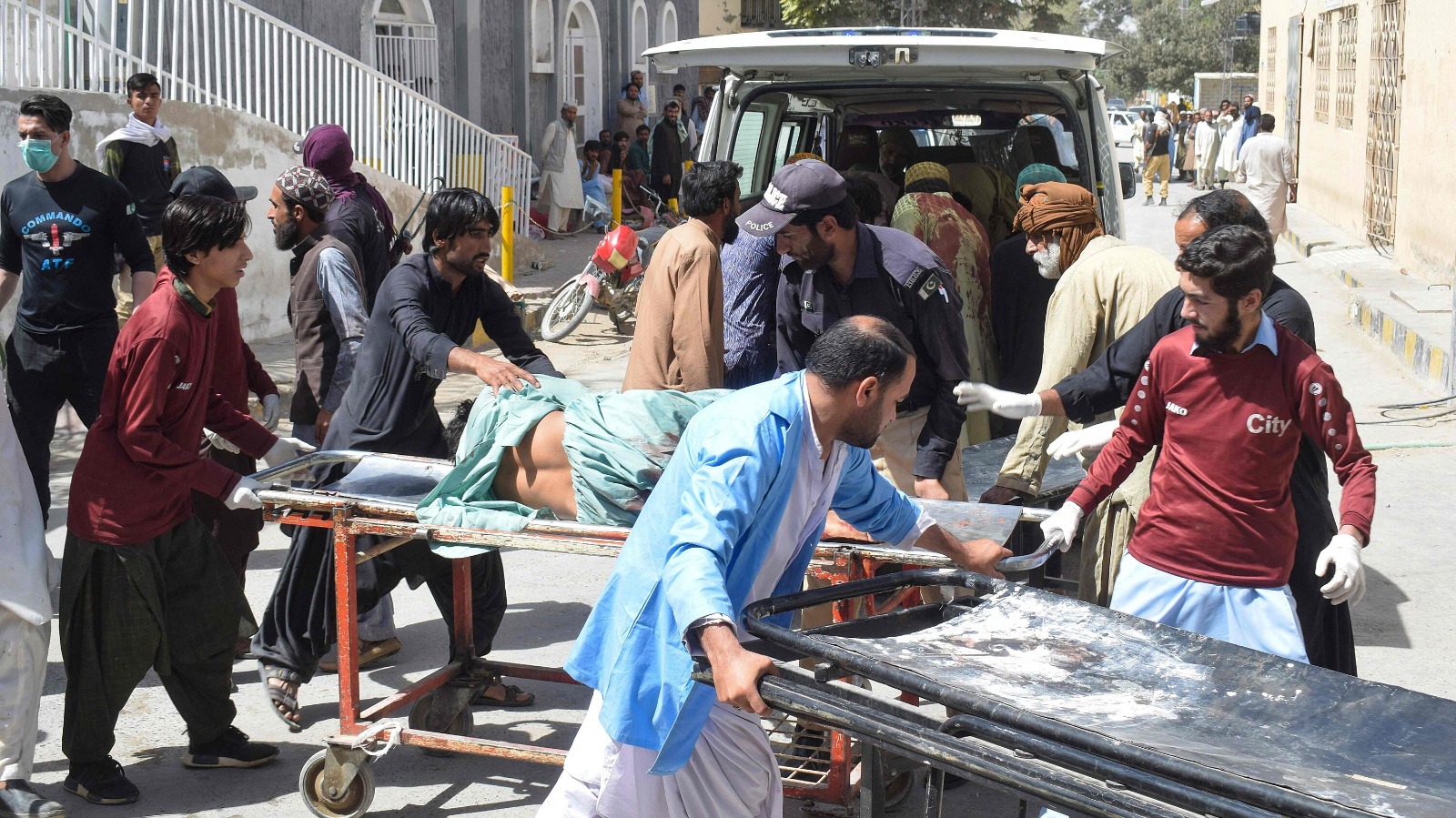In a shocking wave of violence that has sent shockwaves across Pakistan, suicide bombers targeted mosques in two separate provinces, Balochistan and Khyber Pakhtunkhwa, leaving more than 50 people dead and countless others injured. These deadly attacks have once again raised concerns about the deteriorating security situation in the country, where terrorism continues to pose a grave threat to both civilians and security personnel.
Explosions Rock Balochistan Mosque Celebration
In the southwestern province of Balochistan, a horrifying incident unfolded as a powerful bomb detonated near a mosque in Mastung city. The tragedy struck on a day when people had gathered to celebrate the birthday of the Prophet Muhammad, adding to the heartbreak and devastation of the situation. Videos circulating on social media depicted a large crowd, including numerous children, congregating near the mosque just moments before the bomb ripped through, leaving death and destruction in its wake.
Authorities in Mastung have reported that the explosion was the result of suicide bombers, yet as of now, no group has claimed responsibility for this heinous act of violence. Mastung police official Javed Lehri disclosed that the Tehreek-e-Taliban Pakistan (TTP), an outlawed group also known as the Pakistan Taliban, vehemently denied any involvement in the attack. Furthermore, the celebration was organized by two local religious parties, according to officials.
Police Station Targeted in Khyber Pakhtunkhwa
Later in the day, in the northwestern province of Khyber Pakhtunkhwa, at least five lives were tragically lost, with more than 10 individuals sustaining injuries. Two attackers attempted to infiltrate a police station in Hangu city, and when confronted by the police, they turned toward a nearby mosque. The police engaged the assailants in gunfire, causing one to detonate himself at the gate while the second attacker managed to enter the mosque. Fortunately, due to the initial blast, most of the worshippers were able to escape, preventing an even higher casualty count.
Similar to the earlier attack in Mastung, no entity has claimed responsibility for this second bombing. The Pakistan Taliban issued a statement condemning both attacks, emphasizing that their objectives do not involve targeting mosques, seminaries, schools, or public gatherings. They distanced themselves from the violence, referring to the loss of life as “tragic.”
Rising Violence Threatens Pakistan’s Security and Political Stability
These two attacks come at a time when Pakistan is grappling with a dramatic resurgence in violent incidents targeting security officials and civilians alike. According to data from the Pakistan Institute of Peace Studies (PIPS), over 300 attacks have taken place in Khyber Pakhtunkhwa this year alone. Pakistan has repeatedly implored the neighboring Afghan government, currently led by the Taliban, to assist in curbing the rising tide of violence. Pakistan alleges that militants are utilizing Afghan territory as a safe haven for launching attacks on its soil, a claim vehemently denied by the Afghan government.
Iftikhar Firdous, editor of the Khorasan Diary, specializing in armed groups in South Asia, suggests that the attack in Mastung reflects the consequence of a radical ideology cultivated by the Islamic State (ISIL). Firdous explains that regional branches of ISIL, namely the Islamic State Khorasan Province (ISKP) and Islamic State Pakistan Province (ISPP), often target public gatherings and locations to maximize casualties.
Alongside the deteriorating security situation, Pakistan, with a population of 241 million people, grapples with economic uncertainty and political instability. The country, currently under a caretaker government since August, is scheduled to hold general elections in January 2024. Past elections have been marred by violence, with certain political parties targeted by the Pakistan Taliban, hindering their campaigns.
Asfandyar Mir, a senior expert at the United States Institute of Peace, underscores that ISIL and its affiliates are emerging as a significant problem for Pakistan. The group’s capability to disrupt election activities and campaign processes is a growing concern. While the extent of their impact remains uncertain, ISIL’s increasing presence in Pakistan poses a substantial challenge to the nation’s security and political stability.
















